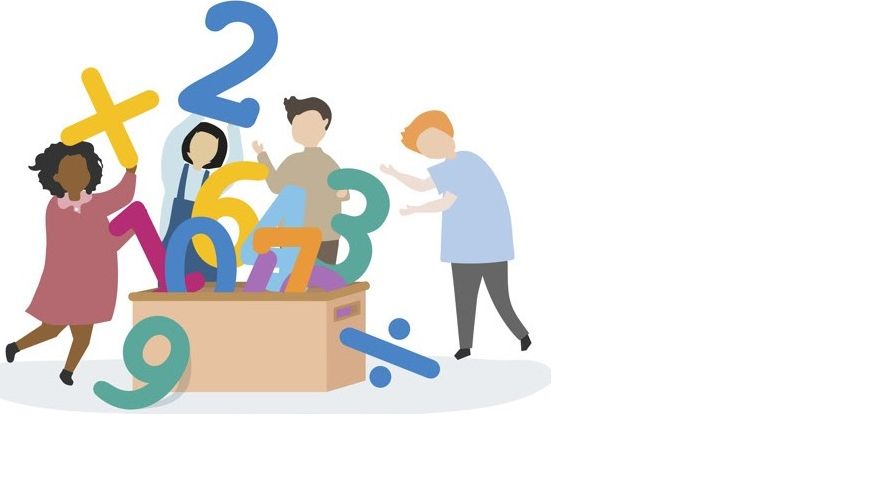
Significance of Maths in the Formative Years
Mathematics plays a significant role in every child’s development and helps children make sense of the environment around them. Children between the age of 1 and 5 years are in the initial stage of exploring patterns and shapes, comparing sizes, and counting objects. Once it comes to preschool children, they use a range of ways to solve problems and observe those findings. Fun games like block games, science games can be considered mathematical games. They may even use Mathematics while playing outside. Mathematics introduces children to concepts, skills, and thinking methods that are vital in daily life and helps in learning other subjects in their curriculum as well. It helps children make sense of the numbers, patterns and shapes they see within the world around them, offers ways of handling information in a progressively digital world and makes an important contribution to their development as prospering learners. youngsters delight in using arithmetic to solve a problem, particularly when it leads them to an unexpected discovery or new connections. As their confidence grows, they look for patterns, use logical reasoning, recommend solutions and try out completely different approaches to issues. Maths offers kids a strong approach to communicating. They learn to explore and justify their ideas using symbols, diagrams and spoken and written language. They begin however mathematics has developed over time and contributes to our economy, society and culture. Learning maths stimulates curiosity, fosters creative thinking and equips youngsters with the talents in life beyond school.
With this, it is evident that maths can be found around us in almost everything. Unlike other subjects, maths cannot be needed practice and since we are in the middle of a pandemic it has been a bit difficult for many to practice maths online in school since it’s more of online classes now. However, in the midst of all these, there are many educational platforms that provide the opportunity for youngsters to practice maths online.
Since we have already studied how it’s around us, let’s dive into the main part of exploring why it’s essential for kids at an early age to study maths:
Maths is taught in the early years to children because it provides opportunities for developing necessary intellectual skills in problem-solving, deductive reasoning, creativity and communication. Sometimes to resolve a math problem we've got to reason logically and systematically, using what's known as deductive reasoning. Some other times, an insight that results in a solution could require creative, divergent, and imaginative thinking which is learnt and practised while solving various Maths problems.
Another reason why learning maths in the primaeval years is as it has applications in the different areas of the curriculum. Much of math as we know it today has developed in response to practical problems in science and technology, within the social sciences and in economic science. So, similarly as being a subject in its own right, with its own principle, patterns and procedures, maths is a subject that can be applied.
In conclusion
Preschool marks a crucial time in a child's cerebral development. What a child learns in this period of time can make all the difference in whether your child will excel or fail in school, and later in life, for that matter.
Foundational mathematics knowledge—including the ability to respond expressively to the concepts of volume, scales, and numeric associations—is one of all the most vital skill-sets a child must master by the time they enter primary school.
If your kid seems to be struggling, do not wait to get help. One can easily get a hold of plenty of courses from the comfort of your home, which can help your child learn maths online. Sometimes, it so happens that even after having a strong base, students face trouble in some aspects of maths. Learning Maths online may give them that extra help that they so need, without having to waste a lot of time by travelling far to reach great tutors.